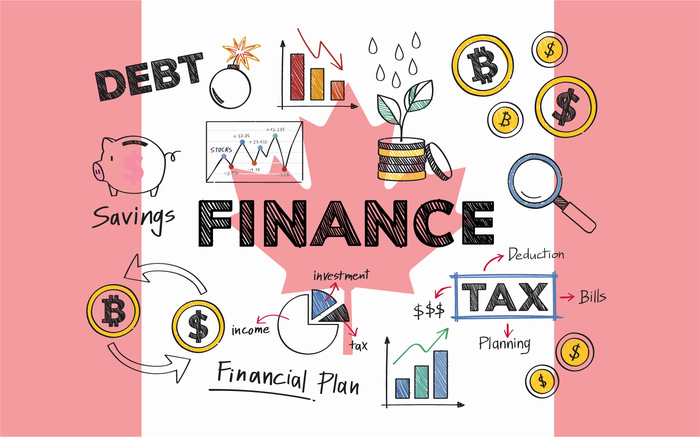Saving money is essential to financial planning, but it can be challenging to achieve if you’re not mindful of your monthly expenses. If you’re looking for practical ways to save money, reducing your monthly expenses is an excellent place to start. You can significantly reduce your monthly bills and increase your savings by making a few simple changes to your spending habits. This article will provide five proven ways to reduce your monthly expenses and save more money. Whether you’re trying to pay off debt, build an emergency fund, or save for a specific goal, these tips will help you achieve your financial objectives. So, let’s dive in and learn how to slash your monthly expenses and save more money.
1. Create a Budget and Track Your Spending
One of the most effective ways to reduce your monthly expenses is by creating a budget and tracking your spending. A budget allows you to see where your money is going and identify areas where you can cut back. Here are some tips for creating and tracking your budget:
- Start by listing all of your monthly income and expenses. Include everything, from your rent or mortgage payment to your morning coffee.
- Categorize your expenses into essential and non-essential items. Essential expenses are those that you need to live, such as food, housing, and transportation. Non-essential expenses are those you can live without, such as dining out and entertainment.
- Set realistic spending limits for each category based on your income and financial goals. For example, you may want to spend no more than 30% of your income on housing and no more than 10% on dining out.
- Track your spending regularly to ensure that you’re sticking to your budget. You can use budgeting apps, spreadsheets, or pen and paper to track your spending.
- Review your budget regularly and adjust it as needed. Your budget should be flexible enough to accommodate changes in your income or expenses.
By creating and tracking your budget, you’ll better understand your spending habits and be able to make informed decisions about where to cut back. This can help you reduce your monthly expenses and save money in the long run.
FAQs:
Q: How to make a budget?
A: To make a budget, start by listing all of your monthly income and expenses. Categorize your expenses into essential and non-essential items and set realistic spending limits for each category based on your income and financial goals. Track your spending regularly to ensure you’re sticking to your budget and adjusting it as needed.
Q: What are some effective budgeting apps?
A: There are many effective budgeting apps available, such as Mint, YNAB (You Need A Budget), and Personal Capital. These apps can help you create a budget, track your spending, and manage your finances more effectively.
Q: How to stick to a budget?
A: To stick to a budget, it’s essential to be disciplined and stay focused on your financial goals. Set realistic spending limits for each category, and avoid impulse purchases. Track your spending regularly and adjust your budget as needed. Finally, reward yourself when you achieve your financial goals to stay motivated.
2. Cut Your Monthly Bills
Cutting your monthly bills is an excellent way to reduce your expenses and save more money. Here are five practical ways to lower your bills:
- Negotiate with your service providers: Many providers, such as cable and internet companies, offer promotional rates to attract new customers. However, these rates often expire after a few months, resulting in higher bills. To lower your bills, call your service providers and negotiate a better rate. Mention that you’re considering switching to a competitor and see if they’re willing to offer you a better deal.
- Cut the cord: Cable TV can be expensive, with the average monthly bill exceeding $100. Consider cutting the cord and switching to streaming services like Netflix, Hulu, or Amazon Prime. These services offer a wide range of content at a fraction of the cost of cable TV.
- Use energy-efficient appliances: Energy-efficient appliances can help you save money on your monthly utility bills. Look for appliances with the ENERGY STAR label, which means they meet strict energy efficiency guidelines set by the US Environmental Protection Agency (EPA).
- Reduce your water consumption: Reducing your water consumption can help you save money on your monthly water bill. Install low-flow showerheads and faucets, fix leaks promptly, and avoid running the dishwasher or washing machine unless you have a full load.
- Refinance your mortgage: Refinancing your mortgage can help you lower your monthly mortgage payment and save money in the long run. Refinancing could be a wise financial move if interest rates have fallen since you took out your mortgage.
You can significantly reduce your monthly expenses and save more money by cutting your monthly bills. With a little effort and creativity, you can enjoy the same services and comforts while paying less.
FAQs:
Q: How can I negotiate my cable bill?
A: To negotiate your cable bill, call your service provider and mention that you’re considering switching to a competitor. Ask if they have promotional rates or discounts, and see if they will lower your bill. Be prepared to negotiate, and don’t hesitate to ask for a better deal.
Q: Are energy-efficient appliances more expensive?
A: Energy-efficient appliances can be more expensive upfront, but they can save money on your monthly utility bills in the long run. Look for appliances with the ENERGY STAR label, which means they meet strict energy efficiency guidelines set by the US Environmental Protection Agency (EPA).
Q: How much can I save by refinancing my mortgage?
A: The amount you can save by refinancing your mortgage depends on several factors, such as your current interest rate, the length of your mortgage, and the new interest rate. Use an online mortgage refinance calculator to estimate your potential savings.
3. Reduce Your Grocery Expenses
Reducing your grocery expenses is an effective way to save money and reduce your monthly expenses. Here are five tips to help you cut your grocery bill:
- Plan your meals: Planning your meals can help you avoid impulse purchases and ensure you buy only what you need. Make a list of the items you need for your meals and stick to it at the grocery store.
- Buy generic brands: Generic brands can be just as good as their name-brand counterparts, and they often cost less. Look for generic brands when buying canned goods, baking supplies, and other staples.
- Use coupons and loyalty programs: Coupons and loyalty programs can help you save money on your grocery bill. Look for coupons in your local newspaper or online, and sign up for your grocery store’s loyalty program to earn discounts and other rewards.
- Shop in season: Buying fruits and vegetables in season can help you save money and ensure you get the freshest produce available. Look for seasonal produce at your local farmers’ market or grocery store.
- Buy in bulk: Buying non-perishable items, such as rice, pasta, and canned goods, in bulk, can help you save money in the long run. Look for bulk items at your grocery store or online.
By following these tips, you can significantly reduce your grocery expenses and save more money each month. With a little planning and creativity, you can enjoy healthy, delicious meals without breaking the bank.
FAQs:
Q: How much can I save by buying generic brands?
A: You can save anywhere from 10-50% by buying generic brands instead of name-brand products. Generic brands are often just as good as their name-brand counterparts and can help you save money on your grocery bill.
Q: Is it cheaper to shop at a farmers’ market?
A: It depends on the farmers’ market and the products you’re buying. While farmers’ markets can offer fresh, locally grown produce, they can sometimes be more expensive than grocery stores. Compare prices between your local farmers’ market and grocery store to determine which option is cheaper.
Q: How can I find coupons for my grocery store?
A: You can find coupons for your grocery store in your local newspaper, online, or by signing up for your store’s loyalty program. Many stores also offer digital coupons that you can clip online and use at the store.
4. Cut Down on Transportation Costs
Transportation expenses can take up a significant portion of your monthly budget. Here are five ways to reduce your transportation costs and save money:
- Carpool or use public transportation: Carpooling or using public transportation can significantly reduce your transportation costs. Consider carpooling with colleagues or using public transportation to get to work or school.
- Use a bike or walk: If you live close to work or school, consider biking or walking instead of driving. Not only will you save money on transportation costs, but you’ll also get some exercise.
- Maintain your vehicle: Regular vehicle maintenance can help you save money on fuel and prevent costly repairs down the road. Keep your tires inflated to the recommended pressure, change your oil regularly, and keep up with other recommended maintenance tasks.
- Drive efficiently: Driving efficiently can help you save money on fuel. Avoid speeding, accelerate slowly, and avoid unnecessary idling.
- Use gas rewards programs: Many gas stations offer rewards programs that allow you to earn discounts on gas. Look for gas stations that offer rewards programs and sign up to start saving.
By implementing these strategies, you can significantly reduce your transportation costs and save money each month. Whether you’re commuting to work or running errands, there are many ways to reduce your transportation expenses and put more money back in your pocket.
FAQs:
Q: How much can I save by carpooling?
A: The amount you can save by carpooling depends on the distance you travel and the number of people in your carpool. On average, carpooling can save you between $600-$1,200 per year in fuel costs and maintenance expenses.
Q: How can I find carpooling partners?
A: You can find carpooling partners through online forums, community bulletin boards, or by asking your colleagues or classmates. There are also several apps and websites available that connect people looking to carpool.
Q: Can I save money on my car insurance?
A: Yes, you can save money on your car insurance by shopping around for the best rates, raising your deductible, and taking advantage of discounts. Contact your insurance provider or shop around to find ways to save on your car insurance.
5. Reduce Entertainment Expenses
Entertainment expenses can add up quickly and take a big chunk out of your monthly budget. Here are five ways to reduce your entertainment expenses and save money:
- Stay in: Instead of going out to eat or going to the movies, consider staying in and having a movie night at home or cooking a nice meal. You can still have a fun and enjoyable evening without spending a lot of money.
- Look for free events: Many cities offer free events and activities throughout the year. Look for free concerts, festivals, and other events in your area to save money on entertainment.
- Take advantage of discounts: Many entertainment venues offer discounts for students, seniors, and members of certain organizations. Check to see if you qualify for any discounts before you purchase tickets.
- Use subscription services: Instead of buying individual books, movies, or TV shows, consider using subscription services like Netflix or Amazon Prime. These services offer a wide variety of entertainment options at a low monthly cost.
- Set a budget: Setting a monthly entertainment budget can help you stay on track and avoid overspending. Decide on a reasonable amount to spend on entertainment each month and stick to it.
By implementing these strategies, you can significantly reduce your entertainment expenses and save money each month. Whether you’re looking for a night out or a quiet evening at home, there are many ways to enjoy entertainment without breaking the bank.
FAQs:
Q: How can I find free events in my area?
A: You can find free events in your area by checking your city’s website, community bulletin boards, or local newspapers. You can also follow local organizations and venues on social media to stay up to date on upcoming events.
Q: Are subscription services worth the cost?
A: Subscription services can be a cost-effective way to access a wide variety of entertainment options. However, it’s important to consider whether you will use the service enough to justify the cost. Before subscribing, evaluate your entertainment needs and determine whether a subscription service is right for you.
Q: How much should I budget for entertainment?
A: The amount you should budget for entertainment depends on your personal financial situation and entertainment needs. It’s important to consider your other expenses and financial goals when setting an entertainment budget. A general guideline is to aim for no more than 10% of your monthly income.




